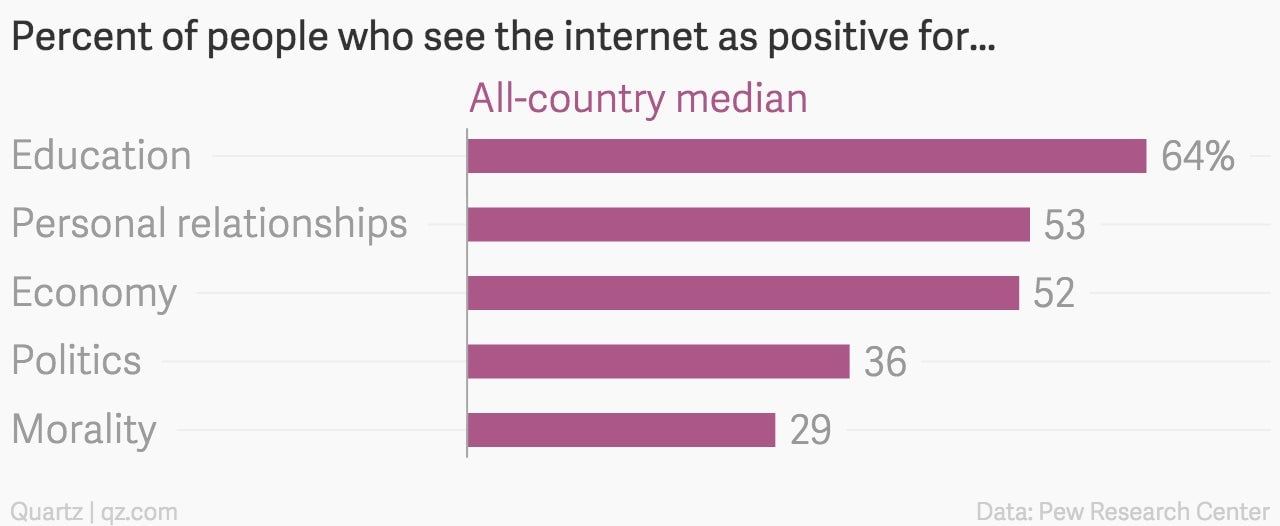People in developing nations think the internet is bad for morality
The internet, it has long been argued by development agencies, financial institutions, tech companies, and the press, is good for countries. According to research conducted by the World Bank in 2009, for every 10% increase in high-speed internet penetration, there is a corresponding 1.3% increase in GDP growth. In the five years to 2009, the internet contributed at least a tenth of the total GDP growth in China, India, and Brazil, according to McKinsey research.


The internet, it has long been argued by development agencies, financial institutions, tech companies, and the press, is good for countries. According to research conducted by the World Bank in 2009, for every 10% increase in high-speed internet penetration, there is a corresponding 1.3% increase in GDP growth. In the five years to 2009, the internet contributed at least a tenth of the total GDP growth in China, India, and Brazil, according to McKinsey research.

The people being affected know this. A new survey from the Pew Research Centre asked people in 32 developing countries their views about the internet. It found that the majority think the internet has a positive effect on the economy. An even greater number believe that it has a positive effect on education and on personal relationships.
But they are also aware of the downsides of the internet. Everywhere except Nicaragua, respondents said that the internet was negatively affecting politics. The influence of the internet is perceived as even worse on public morality; only 29% of people think it positively influences morality. In no country did a majority think the internet positively impacts morality. The survey does not go into detail about why they think this.
